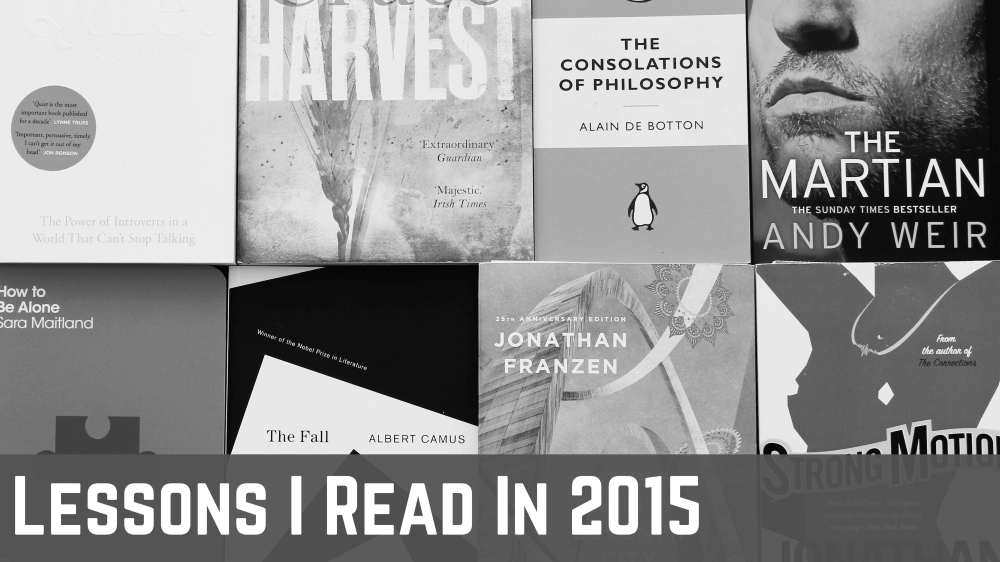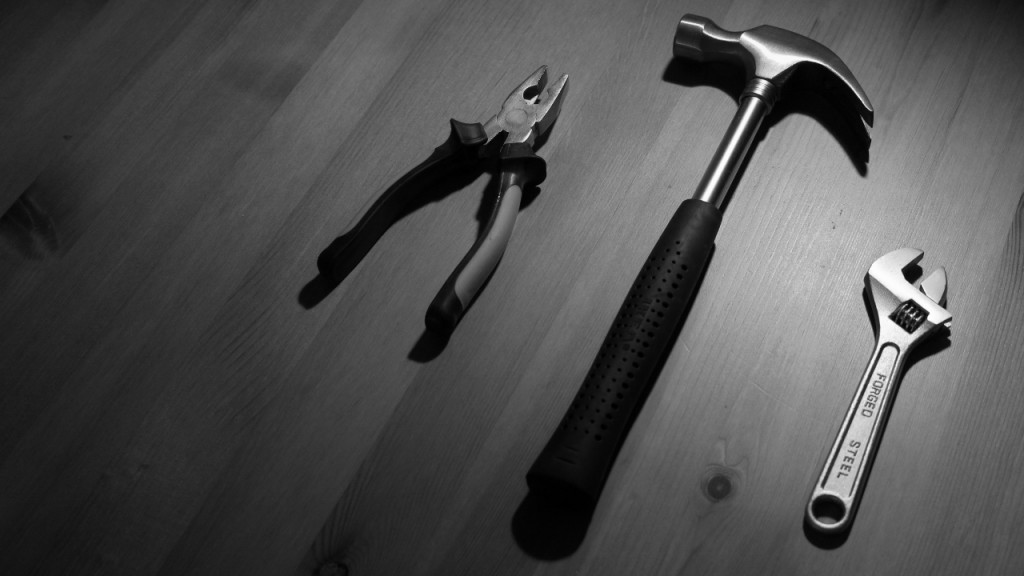Marginalia is a regular series on Toward Vandalia in which I review the books I’m reading and unpack their most valuable lessons.
Today I’m looking at No One Understands You And What To Do About It by Heidi Grant Halvorson.
Heidi Grant Halvorson is the Associate Director of the Motivation Science Center at the Columbia Business School. She first slipped onto my radar in a recap of the 2015 99U Conference, where she was presenting the findings from this book. Her other articles on 99U – where she writes about leadership and communication – are a good sample of both her writing style and unique insight.
With No One Understands You And What To Do About It, Halvorson manages to turn the same trick that David McRaney executed exceptionally with You Are Not So Smart – she makes issues of psychology not only approachable and digestable but also funny.
Here she is talking about the fact that mature-faced people are statistically more likely to be found guilty (92%) than baby-faced people (45%) in incidents that appear to be intentional:
… If someone with a delightfully babyish face, like Jennifer Lawrence, Leonardo DiCaprio, or a young Mark Hamill, ran over your begonias, you’d be likely to think he or she was just distracted by a frolicking puppy or a happy song on the radio. But when Clint Eastwood runs over your begonias, you’re pretty sure he’s doing it on purpose.
The book is divided into four sections that first get to the root of all this misunderstanding between people then delve into the lenses that affect how we see the world and how personality alters those lenses. The last section brings it all together and offers a workable strategy for being better understood as well as better understanding others.
In Part One, Halvorson reminds us that we are essentially unknowable (since nobody can plug directly into our brains) – a problem for those of us who believe we can be analyzed objectively and that others see us the way we see ourselves (or want to be seen). Not only can nobody see us this way (by rule!) but no two people are likely to see us in the same (if objectively incorrect) way.
Making matters worse is the fact that the people you would like to get to know you probably aren’t bothering – their attention is limited and so they use shortcuts to assign attributes to you.
This is complicated by cognitive dissonance and the primacy effect, which cause people to put you in the box they expect you to fit into and to assume that you will never change from their first impression of you, respectively.
Oh, and everybody thinks they’re better than you.
Generally speaking, other people will assume you share their opinions and attitudes, but not their abilities and moral character. With respect to the latter, they believe they are more talented and less corruptible than you are. Try not to take it personally.
However, perception can be “hacked” if you understand how it works. The process is carried out in two phases.
Phase 1 mostly occurs automatically, which could be good or bad depending on the moment.
A person’s “typical” behavior will change as a function of where he or she is, whom the person is with, and what he or she is trying to do.
Unfortunately, most people will stop mentally bothering with you at Phase 1 meaning that if you didn’t make a good first impression, you now have your work cut out for you.
This is overcome by getting people to shift into Phase 2 perception. In this phase they will take more time to analyze your behavior in context and attempt to construct a more accurate perception of you and your being. Granted, this takes more time and energy so most people won’t bother – and if you stuffed up in Phase 1, they’ll be less inclined to see the investment of added mental energy as being worth it.
You’ve experienced this yourself if you ever met somebody when they were having a bad day and wrote them off as being a grumpy / stern / serious / unpleasant person. Maybe you didn’t bother with them for a while after that until an unavoidable situation (perhaps a long car ride where there was no escape!) forced you to consider them again. Whether or not they really were a grumpy person, your perception was most likely refined for accuracy as a result of the extra consideration on your part.
Part Two gets into the three lenses that shape the way we all make the above perceptions.
The Trust Lens
This one is rather straightforward: people will assess whether or not they can trust you. They do this by looking for the answer to two questions about you:
- Are you a friend or an enemy?
- Are you capable of acting on your good or bad intentions?
Halvorson points out that both are important to consider:
The second question is just as important as the first, because if the answer to the second one is no, then you are more or less harmless no matter what your intentions are.
The answers to these questions are sussed out from the warmth and competence we display. Halvorson provides strategies for conveying both, including classics like maintaining eye contact and exercising will power. As she says:
Don’t advertise your personal demons.
The Power Lens
Halvorson offers some uplifting encouragement for dealing with powerful people:
It’s not so much that [powerful people] think they are better than you as it is they simply do not think about you at all.
Well.
Powerful people don’t have a lot of time and are less willing to spend that time on you unless you can prove your value. This is rather straightforward and recalls age-old advice for establishing job security: make yourself indispensable.
The Ego Lens
This final lens is perhaps the trickiest of all, as it’s all about self-preservation for the perceiver.
… The ego lens… has a single mission. In this case, it’s to see things in such a way that the perceiver comes out on top.
The perceiver pulls this off in one of four fascinating ways that seem ripped from the script of Mean Girls:
- They will convince themselves that they and their people are better than you and your people.
- They will decide that you are both similar and can thus share in any victories.
- They will determine that you aren’t actually competing for anything they want, so: no harm, no foul.
- If none of the above are possible, they will avoid you or attempt to destroy you.
Halvorson uses examples from job interviews with candidates of different sexes, races, and qualifications as compared to the interviewers to demonstrate how this plays out in real life (with or without the interviewer even being aware of it). Suffice it to say, you don’t want to be better looking (or smarter) than your interviewer – especially if they have low self esteem.
Halvorson recommends modesty and affirmation to overcome the trouble inherent to the ego lens.
Part Three shows how perception can be a function of personality. Halvorson examines promotion-focused (risk takers) and prevention-focused (risk averse) personalities and encourages readers to adapt their communication according a person’s dominant personality.
For a promotion-focused perceiver, frame your ideas in terms of potential gains or wins… For a prevention-focused perceiver, frame your ideas in terms of avoiding losses or mistakes.
Perhaps the most interesting part of the book for me was Halvorson’s examination of the secure, anxious and avoidant lenses. I have a tendency to be avoidant, so it was encouraging to see these often-misunderstood traits of mine presented as being very normal.
Herein lies the beauty of books such as this: you go in expecting to learn more about others but you end up learning a thing or two about yourself. Halvorson’s techniques for dealing with avoidant-attached people is, of course, useful for me in my dealings with other avoidant-attached people but it’s most beneficial as a means of understanding how I must be coming across to other people.
In short: be patient with avoidant-attached people and don’t take our stand-offishness personally.
The last section brings all of the above together and presents techniques for forcing the issue of perception when needed, as well as a rather intricate guide to crafting the perfect apology. The book concludes with tips on how to reverse-engineer Halvorson’s guide to being better understood into ways of better understanding others.
No One Understands You And What To Do About It is an easy read but is far from a superficial one. Halvorson has deconstructed a problem central to communication in our hyper-communicative world and offers strategies that can be employed in any aspects of our lives and within any context: home, work, school, the gym – anywhere!
She writes with an assured style and peppers in subtle, wink-wink humor to make sure you’re paying attention. Far from your average management or self-help book (which she notes in the intro she specifically tried to avoid writing), No One Understands You And What To Do About It entertains as much as it informs.



